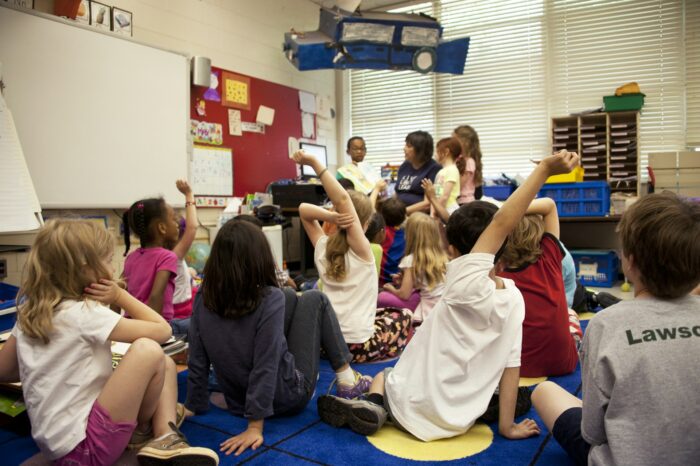In an opinion piece for The Record, Michael Zwaagstra, a senior fellow with the Frontier Centre for Public Policy, discusses why content knowledge is important, and how it may be at risk in schools.
In the 21st century, there has been a debate between content specific versus non-content specific instructions. Content specific instructions refer to a teaching idea where there is a body of information that students are expected to know in a given subject area. Non-content specific instructions do not include the same set of information.
For many educators, the focus is now moving away from content specific instruction to non-content specific skills such as critical thinking and creativity. Specifically, Alberta, British Columbia, and Ontario are making substantial changes to their curricula to reflect these changing ideals. Yet, there are some that believe this is not the best choice for students.

The Importance of content specific knowledge
Having a strong knowledge base in all subjects is critical for several reasons. First, it assists with reading comprehension. When a student is given a passage to read, they are more likely to retain meaningful information from it if they already have background knowledge about the subject. The more a student knows about what they are reading, the easier it is to understand.
Next, without knowledge of relevant topics, critical thinking about such topics cannot take place. Zwaagstra brings up the example of the Elementary Teachers’ Federation of Ontario’s proposal to remove the name of Sir John A. Macdonald from public schools due to his controversial past. In order to think critically and decide on their standpoint regarding this issue, one would need to know the history behind the conflict. The necessary knowledge would come from content specific, also known as rich instructions.
Finally, content knowledge can empower students from low socioeconomic backgrounds. These students often have had fewer learning opportunities than students who come from more affluent homes. Content rich instruction is an opportunity for educators to close this gap. By ensuring that all students have the same knowledge base, educators can help even the playing field.
Protecting Content Knowledge
The fight for more content rich instructions begins at the provincial level. Education departments must implement content specific guidelines for curricula. The guidelines should be appropriate for the grade level, substantial, and follow a logical flow. Locally, principals and superintendents need to support content rich instructions.
Zwaagstra closes by saying, “Knowledge is powerful….by restoring knowledge to its rightful place, we can help ensure that all students receive a top-quality education”.
Categorised in: Uncategorized
This post was written by Rebecca Vermette
